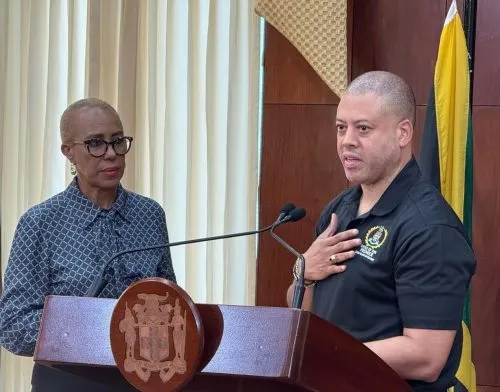Copyright birminghammail

If you're battling anxiety or sleep troubles, your doctor might prescribe lorazepam or alprazolam, better known as Xanax. These medications belong to the benzodiazepine group and function by targeting gamma-aminobutyric acid (GABA), a chemical that produces calming effects throughout the body. Whilst both medicines can tackle anxiety, alprazolam may also be prescribed for managing seizures linked to epilepsy. Despite proving effective for treating anxiety symptoms and other conditions, one clinical psychologist has warned against becoming too dependent on these medications. Fernando Azor, a psychologist who regularly posts content on social media, told his TikTok audience that whilst benzodiazepines can help 'soothe' anxiety symptoms, they don't tackle the underlying causes. He stressed that physical symptoms connected to anxiety aren't always necessarily harmful or in need of immediate medical treatment. In a recent clip, originally shared in Spanish, Fernando explained: "If you have taken Lorazepam or Alprazolam to resolve an anxiety attack, you have to consider what is behind an anxiety crisis, and those peaks of alertness and concern, so that you can manage them, in addition to using the help of one of these drugs . These drugs, Alprazolam and Lorazepam, are well-known drugs that have a very significant effect in reducing levels of alertness, worry and distress.", reports the Daily Record . "What happens is that people who have anxiety crises are not capable of facing and dealing with these physical symptoms caused by anxiety. We often associate a rapid heartbeat, blurred vision, feelings of strangeness or nervousness as something really negative that must be avoided at all costs. "Nobody likes feeling that, but it is a very logical and reasonable symptom, depending on how we perceive something or the objective nature of what threatens us. It doesn't matter if it's subjective or objective." "If we perceive a situation as a threat, it makes sense for our body to react. Fernando emphasises the importance of developing coping strategies to manage anxiety, particularly during an anxiety attack." This is in line with NHS advice for generalised anxiety disorder (GAD), which suggests that treatment may involve talking therapies such as cognitive behavioural therapy (CBT) alongside medication. Fernando explains: "The problem with anxiety crises is that we end up looking for the drug, which takes little time to take effect, especially if you put it under the tongue, when the effect is further abbreviated. "We will effectively make the feeling disappear, but we will create the sensation that all symptoms of alertness and concern are wrong. And that would be like saying that being hungry is wrong. It is a sensation that can sometimes be very intense, even unpleasant, but it is not inherently bad. What happens then?". "Eating solves the issue. However, when it comes to anxiety, the only thing we do is create more sensation of distress and further dependence on a drug without creating a strategy to cope with it. ". "Through psychotherapy, it is possible to train people in skills and experiences that reduce the perception of discomfort when faced with symptoms of anxiety. The person learns not only through logic but also through experiences to live with these feelings without wanting to eliminate them so quickly. "In this sense, it would not be as necessary to take Alprazolam, and it would effectively help moderate the person's feelings of anguish, nervousness, or discomfort, until they disappear at some point." If you're showing signs of untreated anxiety, such as struggling to sleep, finding it hard to manage your emotions, or feeling worried most of the time for at least six months, it's usually advised that you visit your GP. NHS guidance emphasises that your doctor may provide various treatment options, including:. Additional information on generalised anxiety disorder, including available treatments, can be found here.



